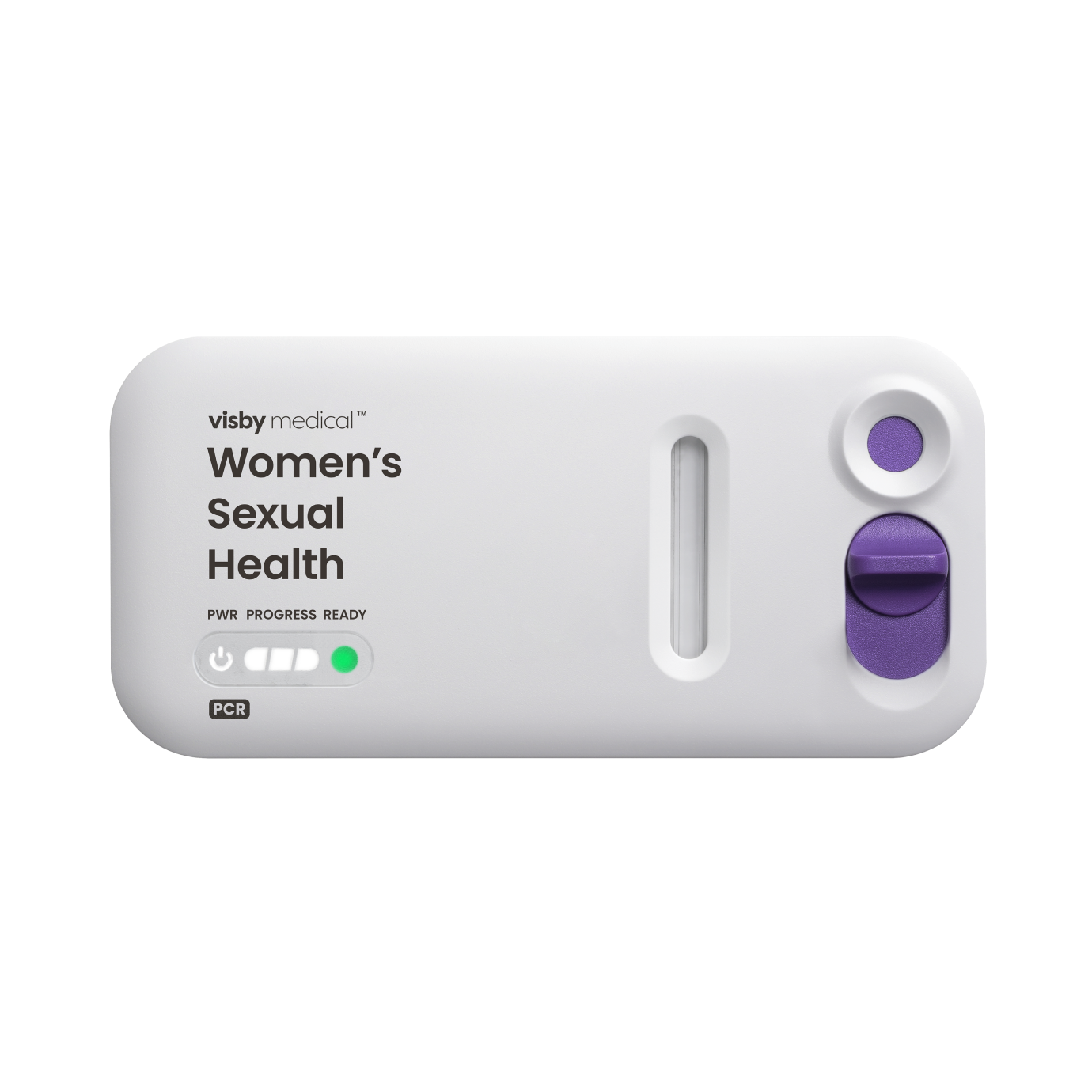
Medically Reviewed By: Jillian Foglesong, MD, FAAFP
How Accurate Are At-Home Hormone Tests?
At-home hormone testing is appealing to many people who don't have time to go to a healthcare provider or who may be embarrassed to discuss their symptoms with one. However, getting accurate information is also vital when making health decisions. At-home testing has become increasingly popular over recent years, and some healthcare organizations have raised concerns about the lack of regulation surrounding at-home testing.1 Despite these concerns, at-home lab tests, also called direct-to-consumer (DTC) testing, can improve access to healthcare services and empower patients to take more control of their health.2
How Can You Improve the Accuracy of At-Home Testing?
A lack of regulation can lead to inaccuracies in test results. Fortunately, you can take steps to improve the accuracy of these results. Labs and tests that are held to the same quality validation as traditional labs can potentially improve the accuracy of results. Labs that are CLIA-certified or those accredited by the College of American Pathologists will have appropriate quality measures in place.2,3
Many at-home testing options offer consultation with a healthcare provider to help interpret the results. Having a healthcare provider guide you is another tool that can help improve accuracy. A healthcare provider can help you determine if your symptoms correlate with the results of the tests. They can also help identify if an abnormal result seems false.2
Another way to ensure more accuracy in testing is to make sure that you are following all of the instructions provided by the at-home lab. This may include the time of day that the labs should be drawn or where you are in your menstrual cycle.
What Hormones Can be Tested at Home?
Thyroid
The thyroid gland is at the base of your neck and is part of a feedback loop that is involved in metabolism control. The other parts of the feedback loop are the hypothalamus region in your brain as well as the pituitary gland.4
Thyroid testing may include thyroid stimulating hormone (TSH), thyroxine (T4) and triiodothyronine (T3), thyroid antibodies such as thyroid peroxidase (TPOAb) and thyroglobulin antibody (TgAb), and others. These tests can help you better understand your thyroid levels and detect any imbalances.
Reproductive
Many hormones are involved in the reproductive cycle. Several of these can be evaluated through at-home hormone testing. Reasons that you may want to test these hormone levels include menopause and infertility.
Testosterone is produced primarily in the testicles but is also produced in the ovaries. The hormone levels will be naturally higher in those assigned male at birth (AMAB) than in those assigned female at birth (AFAB). Testosterone is often measured as free or total (both protein-bound and free).5
You may choose to have your testosterone tested if you are experiencing problems such as erectile dysfunction, low sex drive, decreased muscle mass, or infertility.
Estrogens and progesterone are primarily produced in the ovaries but are also produced in the testicles and in fat cells.6 The three forms of estrogen may be tested to monitor for problems with puberty, unusual breast growth in males or people AMAB, infertility, menstrual problems, pregnancy, erectile dysfunction, or following treatment for some of these medical conditions. Progesterone levels may be useful for patients who are having trouble getting pregnant, having abnormal periods, or have had recurrent miscarriages.7
Adrenal
Adrenal hormones are commonly thought of as stress hormones. These include adrenocorticotropic hormone (ACTH) and cortisol. ACTH is produced in the pituitary gland and triggers your adrenal glands to produce and release cortisol and androgen hormones such as testosterone. Cortisol and ACTH affect a number of bodily functions, including:8
- Sleep-wake cycles
- Stress response
- Metabolic response
- Inflammation
- Blood pressure changes
- Blood sugars
Cortisol levels rise and fall throughout the day and are often affected by other medical conditions such as thyroid disease, obesity, and pregnancy, as well as stress (physical or emotional), medications, infection, injury, exercise, or other diseases.9
What Are the Symptoms of Hormone Imbalance?
You may want to get your hormones tested for a number of reasons. If you are experiencing symptoms of hormone imbalance, you may be interested in checking hormone levels. Some of the symptoms associated with hormone imbalance include:10
- Menstrual changes
- Trouble getting pregnant
- Menopause symptoms such as vaginal dryness, hot flashes, night sweats, or decreased libido
- Tiredness
- Changes in hair or skin
- Sudden acne
- Unexplained weight changes (gain or loss)
- Recurrent pregnancy loss or miscarriage
- Sleep problems
- Decreased sex drive
- Muscle or strength loss
- Recurrent illness
- Joint pain or stiffness
- Sudden or unusual stretch marks
- Facial puffiness
- Inability to tolerate cold or heat
- Anxiety
- Depression
These are not the only symptoms that can be associated with hormone imbalance, and other conditions can cause many of these symptoms aside from hormone imbalance. If you have questions about what types of testing may be best for you, you may want to speak with a healthcare provider to determine which tests would be most appropriate.
What Do You Do After You Get Your Results?
So you've checked your levels, now what? If you've got hormone imbalances, or if your symptoms aren't explained by your lab results, you may want to talk to a healthcare provider. Another step you can take is to try lifestyle changes to improve your symptoms. Some of the lifestyle changes you may want to consider include:11
- Stay current on your health maintenance and recommended preventative testing.
- Manage your stress levels.
- Exercise regularly.
- Maintain a healthy weight.
- Get adequate sleep (and good quality sleep).
- If you smoke, stop (and if you don't, don't start).
- If you have chronic health conditions, check in regularly with your healthcare provider and take any medications that are prescribed to keep them under control.
- Avoid alcohol (or minimize use).
You may see a lot of advertisements or information about supplements that claim to support your hormone levels. While some supplements may be useful for some health conditions, supplements are not generally regulated or monitored by the Food and Drug Administration, so there may not be adequate scientific evidence or studies to support their use. If you're considering starting a supplement, you should check with your healthcare provider prior to use.
Should You Choose At-Home or In-Clinic Hormone Testing?
Most clinic-based healthcare providers use in-clinic lab tests rather than at-home labs. At-home-based testing can have variable accuracy and quality because it requires the patient to collect the tests. In-clinic labs are required to undergo strict quality testing and have regular quality control evaluations to maintain their certifications. At-home labs may choose to undergo the same certifications, but not all do.12
Your in-clinic healthcare provider is responsible for relaying the results of your in-clinic labs and discussing the potential consequences of the results. Some at-home-based labs have variable access to healthcare provider support for understanding the results.
Learn More About Your Hormone Levels With Everlywell
Hormone imbalances can cause a variety of symptoms that can significantly impact your life. These symptoms can also overlap with other conditions, such as depression. At Everlywell, we offer a number of at-home lab tests for hormone levels and other conditions.
One is the Women's Hormone Test, for women and people AFAB, which evaluates 10 of the key female reproductive hormones, such as progesterone, estrogen, and cortisol among others. We also offer a Men's Health Test for men and people AMAB.
Understanding your hormone health often requires the guidance and expertise of a healthcare provider. At Everlywell, we offer more than just at-home lab testing. If you're looking for more guidance on your hormone health, or other conditions, you can schedule a virtual visit with our certified healthcare providers.
References
- Gram EG, Copp T, Ransohoff DF, et al. Direct-to-consumer tests: emerging trends are cause for concern. BMJ. Published December 4, 2024. doi:10.1136/bmj-2024-080460
- Stoffel M, Greene DN, Beal SG, et al. Direct-to-consumer testing for routine purposes. Clin Chem. 2022;68(9):1121-1127. doi:10.1093/clinchem/hvac106
- Kidd BA, Hoffman G, Zimmerman N, et al. Evaluation of direct-to-consumer low-volume lab tests in healthy adults. J Clin Invest. 2016;126(5):1734-1744. doi:10.1172/jci86318
- Shahid MA, Ashraf MA, Sharma S. Physiology, thyroid hormone. In: StatPearls. StatPearls Publishing; 2023. Accessed February 19, 2025. https://www.ncbi.nlm.nih.gov/books/NBK500006/
- Professional CCM. Testosterone test. Cleveland Clinic. Published September 17, 2024. Accessed February 19, 2025. https://my.clevelandclinic.org/health/diagnostics/21392-testosterone-test
- Estrogen levels test. Accessed February 19, 2025. https://medlineplus.gov/lab-tests/estrogen-levels/
- Progesterone test. Accessed February 19, 2025. https://medlineplus.gov/lab-tests/progesterone-test/
- Professional CCM. Adrenocorticotropic hormone (ACTH). Cleveland Clinic. Published July 18, 2024. Accessed February 19, 2025. https://my.clevelandclinic.org/health/diagnostics/21754-acth-test
- Professional CCM. Cortisol test. Cleveland Clinic. Published October 4, 2024. Accessed February 19, 2025. https://my.clevelandclinic.org/health/diagnostics/21094-cortisol-test
- Cleveland Clinic. Do you need hormone testing? Published June 28, 2024. Accessed February 19, 2025. https://health.clevelandclinic.org/do-you-need-hormone-testing/
- Cleveland Clinic. Hormonal imbalance. Published October 18, 2024. Accessed February 19, 2025. https://my.clevelandclinic.org/health/diseases/22641-hormonal-imbalance
- Visana Health. Published June 2024. Accessed February 19, 2025. https://www.visanahealth.com/
Spotlight on
February is Cancer Prevention Month

86% of cancers aren't caught by recommended screenings. See what they're missing with a single blood draw.
Learn more
Explore Everlywell









